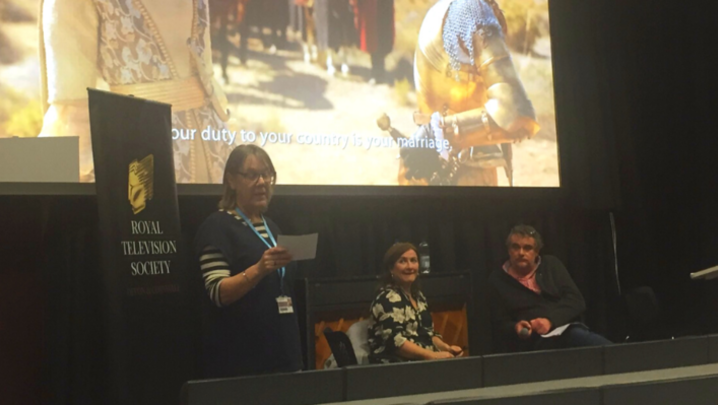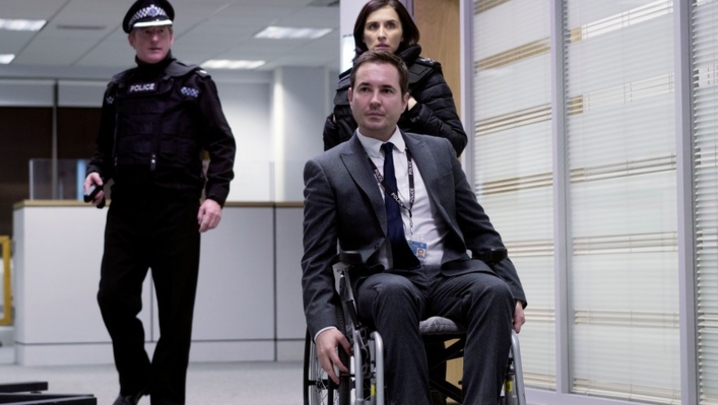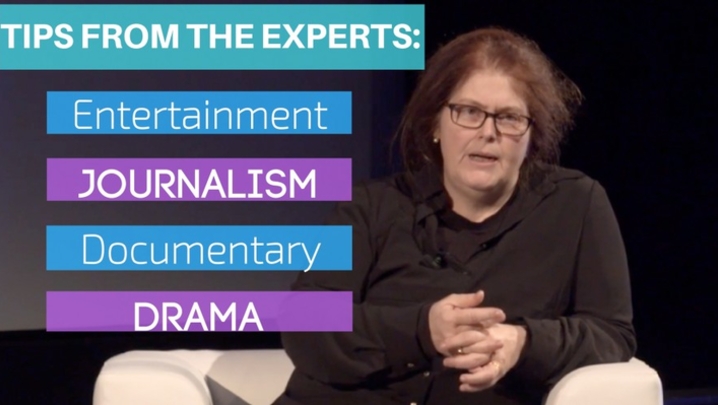Ever fancied yourself as an award-winning screenwriter?
Rob Gittins has written for TV and radio for 30 years, and is currently the longest serving writer for hit BBC soap EastEnders.
He has also written a number of novels, as well as contributing scripts to numerous other TV and radio shows.
1. Write!
It’s not easy to make a living as a novelist, frankly, it’s a lot easier to make a living in TV or film. In the end it all comes down to stories. That’s exactly what I do in EastEnders or in Casualty, write stories.
It all begins with your original stuff. You write original stuff, a producer sees it and they think you may be able to write for them.
If you’re a director, you’re going to need a camera. If you’re an actor, you’re going to need a script. If you’re a producer, you’re going to need all of them. But if you’re a writer, just write a story.
2. Have faith in your writing
You’ve got to have faith that what you’re doing is going to get seen by somebody or read by somebody. We all know there are lots and lots of different shows which are fantastic but never get seen, never get made. I’ve got writer friends who’ve written entire series of their own – eight hours, ten hours – and it’s never been made.
3. Get something made
I thought it was hard when I started off. I think it’s actually much harder now.
Now there are 5 million channels it should be better and it’s not. It’s made traditional channels less inclined to take risks because there’s always more competition… Everyone is always on the lookout for somebody who’s got a voice, and you’ve only got a voice by writing a play. That’s all you’ve got.
How do you get it on? You could write a theatre piece, but you’ve got to get people there to actually see it. Television? You’ve got to break in first of all.
Radio is fantastic. Radio put on 500 plays a year! A lot of people in the industry listen to radio plays and so many people started there. Tom Stoppard started on radio, Harold Pinter started on radio.
The acid test is the play, so it doesn’t matter who write it in the end. If he’s actually reading the play, and the play is good, it will get put on.
4. Write your own way
Some writers do scene-by-scene breakdowns, and they are works of art – they really are!
Every now and again, I’ll do a scene-by-scene breakdown if somebody insists, but the second I actually start writing the script, things happen. It doesn’t actually work for me.
I’ll just take one of the stories, say it’s a story about Phil Mitchell, and I write a ten minute play about Phil Mitchell. Then I leave that to one side. If there’s another story about Sharon, I write a five minute play about her. The minute do those I am starting to see connections. I build it that way. I’d really like to say it’s really planned and really clever, but sometimes it’s not.
5. Look for other ways in to the industry
About 20 years ago, my agent Jill had a vacancy as a secretary. This woman turned up wanting it. Jill looked at her CV. She was ridiculously overqualified for the job, so Jill said ‘why do you want the job?’
The woman said, 'here’s the deal: I will work for you for a year. I will be the best secretary you’ve ever had. But in that year, I’m going to get the contact details of every single person in the industry.’
Jill thought about it and thought, that’s a really good deal. She’s really honest, she’s really open. She’s now a very successful television producer, but for that one year she answered the phone.










